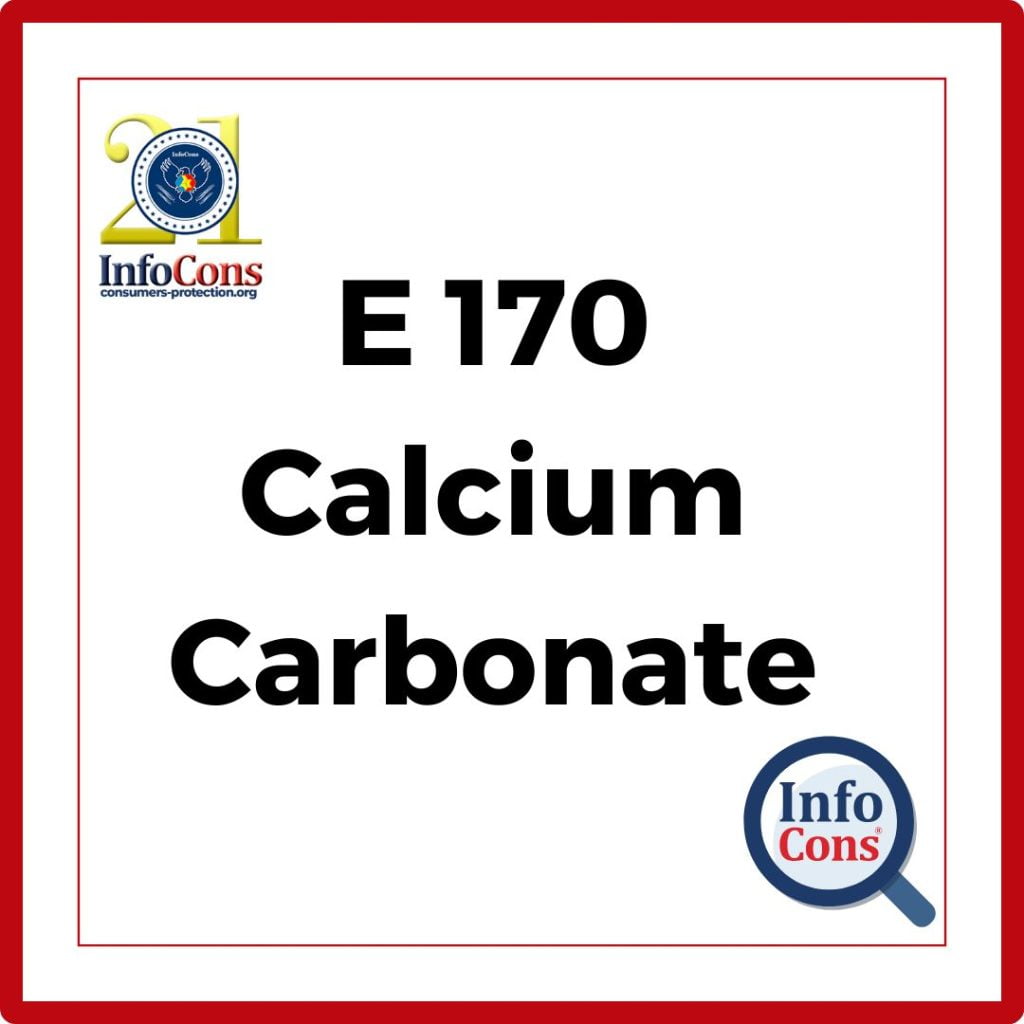
What is Food Additive E 170 ?
E170, calcium carbonate, is a widely used food additive with a broad range of applications. From modifying the texture of foods to enhancing nutritional content, calcium carbonate plays a significant role in the food industry.
E 170, calcium carbonate, is a natural compound found in rocks such as limestone, marble, and chalk. It acts as an acidity regulator, anti-caking agent, emulsifier, stabilizer, and coloring agent. It belongs to the category of natural mineral additives and can be found in the form of E 170(i) – Calcium Carbonate or E 170(ii) – Acidic Calcium Carbonate.
It is a white, odorless, and tasteless powder that is insoluble in water but soluble in acids, releasing carbon dioxide.
Read also – E153 – Vegetable carbon
What is the Recommended Daily Dose ?
Calcium carbonate (E170) is approved for use in food products by regulatory agencies worldwide, including the European Food Safety Authority (EFSA) and the U.S. FDA.
EFSA has concluded that there is no need to establish an acceptable daily intake for calcium carbonate and that, in principle, there is no safety concern regarding exposure to calcium carbonate, E170.
InfoCons Consumers Protection informs you also about – E162 – Betanin
In What Products Can E170 Be Found ?
Calcium carbonate is commonly used to fortify foods and beverages with calcium, an essential mineral for bone health and other body functions. It is added to a wide range of products:
- Bakery Products and Biscuits: Helps regulate acidity and improve dough handling.
- Calcium-fortified Beverages: Adds calcium content.
- Breakfast Cereals: Acts as an anti-caking agent.
- Canned Fruits: Helps firm up texture.
- Chewing Gum: Acts as a filler ingredient.
- Glazes, Pills, and Confectionery Products: Can be used as a coloring agent.
In general, E170 is a versatile and safe food additive found in a variety of processed foods.
Read also – How to Choose Fruits and Vegetables at the Store
Contraindications and Risks
Consuming excessive amounts can cause hypercalcemia, manifested by vomiting, abdominal pain, altered mental state, and long-term issues such as kidney problems. It is not allowed in foods intended for infants and young children.
In conclusion, E170, calcium carbonate, is a versatile and widely used food additive with numerous applications in the food industry. From improving nutritional content to enhancing texture and stability, it offers significant benefits and is recognized as safe for consumption. As with any food additive, it is essential to use calcium carbonate in accordance with recommended guidelines to ensure its benefits are maximized without compromising health.
Look for products that have a cleaner label or use natural additives. By installing Consumer Protection InfoCons App and scanning the barcodes of food products, you can find out the number and type of food additives they contain.
Author – Cosmina Nițu
Master in Nutrition – Infant and new born nutrition
Sources:
https://www.efsa.europa.eu/en/ – European Food Safety Authority (EFSA)
InfoCons – European Organization for Consumers Protection and Promotion of Programs and Strategies , a full member of the World Organization Consumers International, founding member of the Federation of Consumer Associations, and member of ANEC.